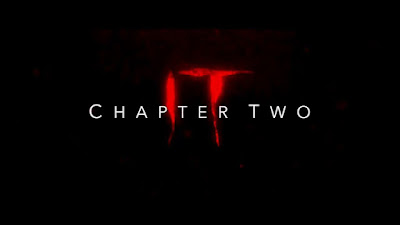We all float down
here.
Firstly, let’s get rid of the notion that movies & TV
series shouldn’t be remade, rebooted or re-imagined. That’s just rubbish. Since the dawning of man (and woman) over
200,000 years ago in the Middle Paleolithic period we have told and retold
stories. You know, sitting around the
campfire, char grilling bison and “storytelling” about how you speared that
bison to death and how you hoped to be chosen by the good looking woman in the
next door cave.
Drag your humanoid body along to more recent times of around
1600 and there was a famous Bill (not Clinton) writing poems and plays. Somewhat impenetrable for the reader today
without a dictionary and abridged notes (Just read the notes I say) William Shakespeare’s
works have been reprinted, re-imagined and made into numerous movies and
plays. Every year there are hundreds of
stage productions all across the globe.
Then drag your sorry cantankerous (The original is the best
and everything else is rubbish) ass to the middle of the 20th
century. Everyone has heard of Rogers
& Hammerstein. They were
responsible for writing over a dozen musicals, over 300 songs, that spawned
numerous movies and many stage productions (go on start humming “How do you
solve a problem like Maria”). To date
there are over 480 Broadway musicals and this list is growing all the time.
So you see, remakes are not a modern phenomenon. We hear or read a story. We then retell, embellish,
add-to & sometimes take away. Go
back to old Willy Shakes (that’s his contemporary name for his new Rudai23 blog),
he wrote fantastic stories but some would agree with me that they are bloody
hard to read. Now, if they were
rewritten in today’s English I think that would make them more accessible and
open them up to a whole new audience. Throw
in a 140 character description to tweet and you’re on to a winner. You wouldn’t take away from the original, it
would actually give the reader the motivation to check out the original work. Ebooks have done something similar. With a lot of old material readily available
to download for free, it has opened up a whole new genre of books to
people. If you read Oscar Wilde’s The Picture of Dorian Gray for the first
time on your kindle I can bet you will download some more of his work.
Stephen King’s IT is the perfect example, published in 1986
with a mini TV series in 1990, the remaking of the film has generated interest
all over again. Stephen King, The Master
of Horror is responsible for many sleepless nights but some of the most amazing
and unforgettable books (and subsequent movies). And those are the titles and famous lines you
associate with King...
IT The Shining Misery
And then think about the stuff you don’t associate with
Stephen King. Shawshank Redemption (Get busy living, or get busy dying), Stand
by Me (movie with River Pheonix), The Green Mile, The Running Man (Arnold
Washyknickers), Under the Dome (yes, it was before the Simpsons).
From a librarians point of view and picking up on a previous
point about interest getting regenerated for an original book. On 14th September
2017, 6 days after the release of IT across the Irish Public Libraries there
were about 100 copies of IT available and more than 130 holds. There were
10 new copies ordered to help meet the demand. This from a genre that was once
viewed (and sometimes still is viewed) as “not proper literature” for a
library.
But let’s get back to the remake of IT and a little about
movie adaptations. So, you should now agree with me that we should
embrace and welcome remakes. If the recent version is great, brilliant,
something new to watch. If it’s crap, don’t worry because it will
regenerate interest in the original. Everyone wins and of course most
importantly the author wins again with more royalties. As to the remake
of IT, go see it for yourself. It's the best horror film for
years breaking all previous box office records for a horror movie and the next
chapter is already confirmed. Whilst I loved Tim Curry in the original
movie, Bill Skarsgard is amazing although unrecognisable in this remake.
The new movie is scarier and flows much better. The
previous version is told through a series of flashbacks which were quite
jarring and just didn't work. The newer version is the first half of the
story, told through the kids with no flashbacks, altogether a much easier to
follow premise. King's work has for decades translated very badly into movies
due to the complex layering of the storyline, intertwining plots and memorable
& monumental characters. Unfortunately, both movies fall down in one
area of the adaptation, Pennywise is the manifestation of fear and therefore should be different for everyone. The character of the clown is developed too much
in both movies rather than trying to show each person's fear. However,
this is the only negative I have for IT, it's not enough to lose a planet.
Final Verdict: A
massive success that will instill a fear of clowns for generations to come.
Movie Review by The Captain.
(Rating - 10 out of 10 planets)

#wexworlds #weallfloatdownhere #rudai23 #remakes #IT





































